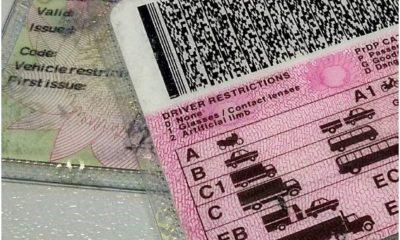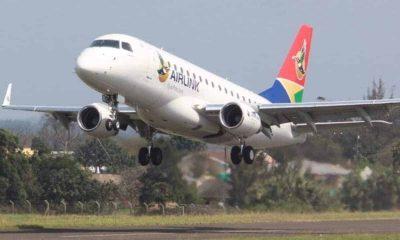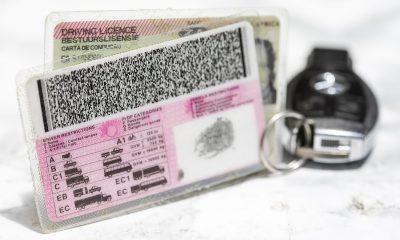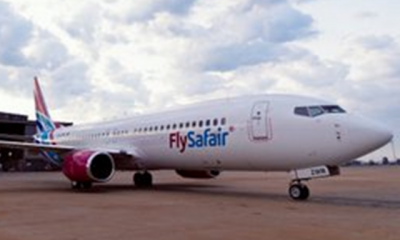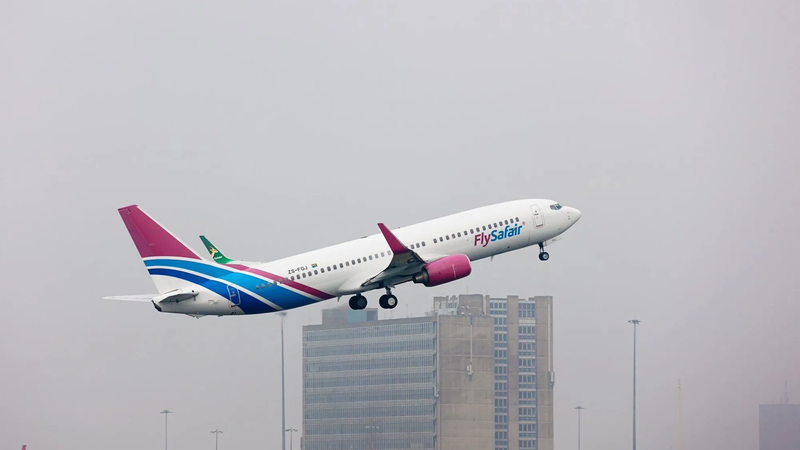Business
FlySafair’s Ownership Under Scrutiny Amid Licensing Council Shake-Up
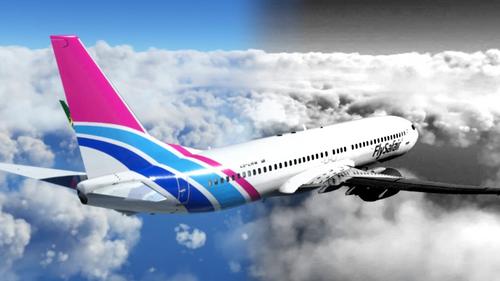
FlySafair’s future remains uncertain as South Africa’s Department of Transport (DoT) overhauls key aviation licensing councils, delaying a pending sanction against the airline over non-compliance with foreign ownership regulations.
At the center of the matter is a ruling by both the International Air Services Licensing Council (IASLC) and the Air Services Licensing Council (ASLC), which found that FlySafair’s shareholding structure fails to meet the legal requirement that 75% of voting rights be held by South African citizens who are also residents.
Despite this, no sanction has been issued—yet.
Council Overhaul Stalls Ruling
The delay follows a major reshuffle by the DoT at the end of March, when the terms of both licensing councils expired. Instead of allowing the outgoing councils to complete and deliver overdue decisions, including the FlySafair sanction, the department appointed entirely new members with no transitional handover.
Sources from the former council confirmed that a ruling had been prepared but not delivered by March 31, the final day of their term.
“Even judges are allowed the courtesy of delivering a ruling after term expiry. This matter involved more than 30 legal practitioners,” said one former council member. “The council was closed out without being allowed to finish.”
Current Status and Legal Timeline
The ASLC previously directed FlySafair—majority owned by Irish-based ASL Aviation Group—to bring its ownership structure into compliance within 12 months of January 23, 2025. This effectively granted the airline temporary breathing room to continue operations while resolving ownership issues.
However, the awaited IASLC sanction was not finalized before the term expired. DoT spokesperson Collen Msibi said the IASLC met on March 31 to finalize the sanction, and that no outstanding decisions were carried over.
FlySafair’s Marketing Executive, Kirby Gordon, confirmed the airline is aware of the gazetted changes but said the airline has yet to receive any sanction from the new IASLC council.
“At this stage we await insight from the councils on what the impact of the change will be,” Gordon stated.
New Councils Appointed, Questions Remain
Transport Minister Barbara Creecy has since appointed Advocate Derick Block as the new IASLC chair, replacing Advocate Nomveliso Ntanjana. Members for both the IASLC and ASLC have now been appointed to serve a three-year term until March 2028.
While the DoT insists no decisions are outstanding, questions persist about whether the procedural break has jeopardized the continuity and legality of key rulings—including FlySafair’s compliance case.
Aviation Industry Holds Its Breath
FlySafair is one of South Africa’s largest low-cost carriers and plays a critical role in domestic air travel. However, the Air Services Licensing Act is clear: foreign ownership beyond the stipulated threshold invalidates eligibility for a South African operating license.
The outcome of this compliance investigation—and the manner in which it’s being handled—could set a precedent for future regulatory enforcement in South Africa’s aviation sector.
“This isn’t just about FlySafair,” said one industry expert. “It’s about the integrity of the licensing process, especially during political or administrative transitions.”
For now, the industry waits to see whether the new councils will uphold the groundwork laid by their predecessors—or chart a new legal path.
{Source IOL}
Follow Joburg ETC on Facebook, Twitter , TikTok and Instagram
For more News in Johannesburg, visit joburgetc.com

